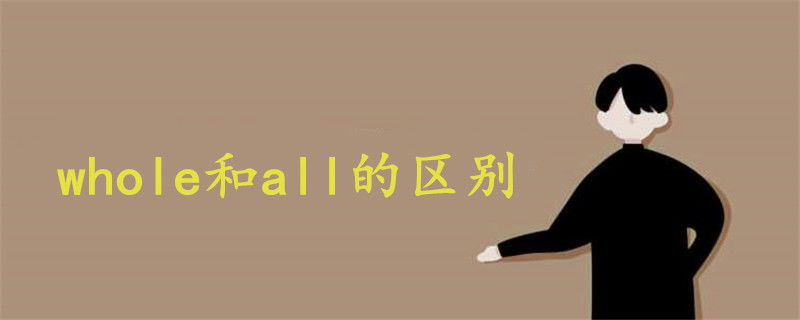whole和all的区别:中文意思不同、词性及用法不同、侧重点不同。whole可作形容词和名词,含义为全部的、所有的、全体,在句中只能用作定语;all可作代词和副词,含义有所有、一切、很、十分等,要放在冠词、指示代词、物主代词等之前。

一、whole的中文释义及用法介绍
1、作为形容词时,意为全部的;整体的;完全的;所有的;(强调大小或重要性)整个的;完整的;完好无损的。
例句:He spent the whole day writing.
他整整写了一天。
We offer a whole variety of weekend breaks.
我们提供的周末假日活动丰富多彩,一应俱全。
Owls usually swallow their prey whole .
猫头鹰通常把猎物囫囵吞下。
Much of the temple was ruined, but the front was whole, as well as a large hall behind it...
庙宇的大部分都被毁坏了,但其正面及后面的大厅还保存完好。
It was like seeing a whole different side of somebody
这就像是看到一个人完全不同的一面。
If you're late, you'll defeat the whole object of the exercise.
如果你迟到了,便不能达到整个活动的目的。
2、作为名词时,意为整个;整体;全部;全体;所有。
例句:The subjects of the curriculum form a coherent whole.
课程中的科目构成了一个连贯的整体。
The effects will last for the whole of his life.
这些将会持续影响他的一生。
For her the whole project was just a game.
对她来说,整个计划不过是场儿戏而已。
The rich benefited from the reforms, not the country as a whole.
富人而不是全体国民得益于这些改革。
I have grave doubts that the documents tell the whole story.
我对这些文件能否说明所有的问题深表怀疑。










